100 Notable alumni of
Martin Luther University of Halle-Wittenberg
Updated:
The Martin Luther University of Halle-Wittenberg is 188th in the world, 66th in Europe, and 10th in Germany by aggregated alumni prominence. Below is the list of 100 notable alumni from the Martin Luther University of Halle-Wittenberg sorted by their wiki pages popularity. The directory includes famous graduates and former students along with research and academic staff. 1 individual affiliated with the Martin Luther University of Halle-Wittenberg won Nobel Prizes in Physics.
-
George Frideric Handel
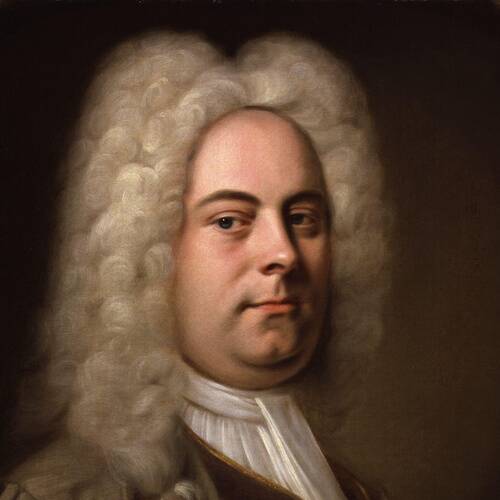
- Enrolled in the Martin Luther University of Halle-Wittenberg
- Studied in 1702-1703
- Occupations
- opera composercomposerimpresarioorganistuniversity teacher
- Biography
-
George Frideric Handel was a German-British Baroque composer well-known for his operas, oratorios, anthems, concerti grossi, and organ concertos. Handel received his training in Halle and worked as a composer in Hamburg and Italy before settling in London in 1712, where he spent the bulk of his career and became a naturalised British subject in 1727. He was strongly influenced both by the middle-German polyphonic choral tradition and by composers of the Italian Baroque. In turn, Handel's music forms one of the peaks of the "high baroque" style, bringing Italian opera to its highest development, creating the genres of English oratorio and organ concerto, and introducing a new style into English church music. He is consistently recognized as one of the greatest composers of his age.
-
Edmund Husserl

- Occupations
- phenomenologistmathematicianphilosopheruniversity teacher
- Biography
-
Edmund Gustav Albrecht Husserl was an Austrian-German philosopher and mathematician who established the school of phenomenology.
-
Oswald Spengler

- Enrolled in the Martin Luther University of Halle-Wittenberg
- Graduated with Doctor of Philosophy in philosophy
- Occupations
- sociologistwriterhistorianphilosophermathematician
- Biography
-
Oswald Arnold Gottfried Spengler was a German polymath whose areas of interest included history, philosophy, mathematics, science, and art, as well as their relation to his organic theory of history. He is best known for his two-volume work The Decline of the West (Der Untergang des Abendlandes), published in 1918 and 1922, covering human history. Spengler's model of history postulates that human cultures and civilizations are akin to biological entities, each with a limited, predictable, and deterministic lifespan.
-
Georg Cantor

- Occupations
- philosopheruniversity teachermathematician
- Biography
-
Georg Ferdinand Ludwig Philipp Cantor was a mathematician who played a pivotal role in the creation of set theory, which has become a fundamental theory in mathematics. Cantor established the importance of one-to-one correspondence between the members of two sets, defined infinite and well-ordered sets, and proved that the real numbers are more numerous than the natural numbers. Cantor's method of proof of this theorem implies the existence of an infinity of infinities. He defined the cardinal and ordinal numbers and their arithmetic. Cantor's work is of great philosophical interest, a fact he was well aware of.
-
Gotthold Ephraim Lessing
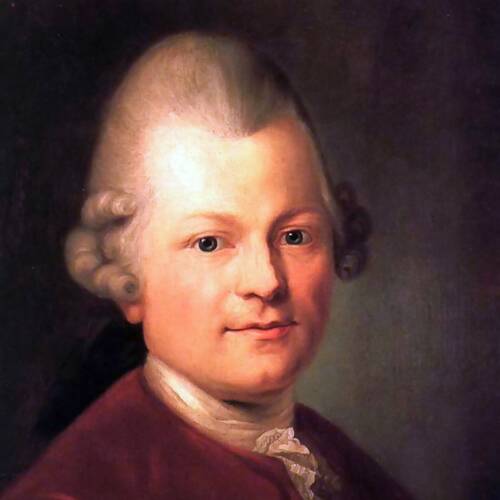
- Enrolled in the Martin Luther University of Halle-Wittenberg
- 1751-1752 graduated with master's degree
- Occupations
- philosopherplaywrightpoetliterary criticdramaturge
- Biography
-
Gotthold Ephraim Lessing was a German philosopher, dramatist, publicist and art critic, and a representative of the Enlightenment era. His plays and theoretical writings substantially influenced the development of German literature. He is widely considered by theatre historians to be the first dramaturg in his role at Abel Seyler's Hamburg National Theatre.
-
Lutz Graf Schwerin von Krosigk
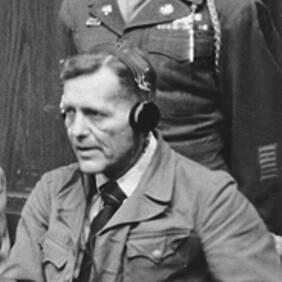
- Occupations
- economistmilitary personnelpoliticiandiplomatjurist
- Biography
-
Johann Ludwig "Lutz" Graf Schwerin von Krosigk was a German senior government official who served as the minister of finance of Germany from 1932 to 1945 and de facto chancellor of Germany during May 1945.
-
Novalis

- Occupations
- engineerpoetwriterliterary theoristphilosopher
- Biography
-
Georg Philipp Friedrich Freiherr von Hardenberg, pen name Novalis, was a German aristocrat and polymath, who was a poet, novelist, philosopher and mystic. He is regarded as an influential figure of Jena Romanticism.
-
Johann Friedrich Struensee
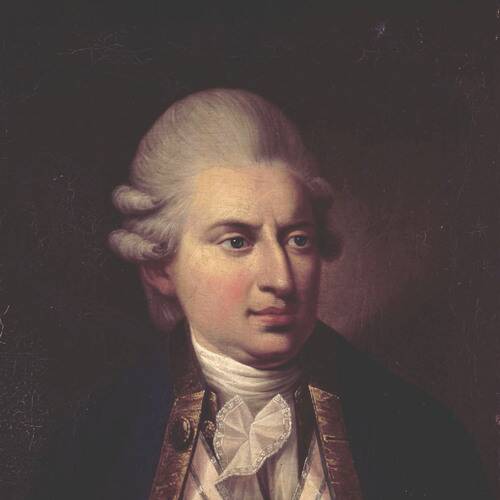
- Occupations
- politicianphysician
- Biography
-
Lensgreve Johann Friedrich Struensee was a German-Danish physician, philosopher and statesman. He became royal physician to the mentally ill King Christian VII of Denmark and a minister in the Danish government. He rose in power to a position of de facto regent of the country, and he tried to carry out widespread reforms. His affair with Queen Caroline Matilda ("Caroline Mathilde") caused a scandal, especially after the birth of a daughter, Princess Louise Augusta, and was the catalyst for the intrigues and power play that caused his downfall and dramatic death.
-
Hans-Dietrich Genscher
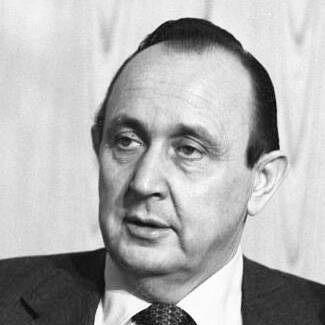
- Enrolled in the Martin Luther University of Halle-Wittenberg
- In 1946 studied general economics and jurisprudence
- Occupations
- foreign ministerpoliticianmilitary personnellawyerinterior minister
- Biography
-
Hans-Dietrich Genscher was a German statesman and a member of the liberal Free Democratic Party (FDP), who served as Federal Minister of the Interior from 1969 to 1974, and as Federal Minister for Foreign Affairs and Vice Chancellor of Germany from 1974 to 1992 (except for a two-week break in 1982, after the FDP had left the Third Schmidt cabinet), making him the longest-serving occupant of either post and the only person to have held one of these positions under two different Chancellors of the Federal Republic of Germany. In 1991 he was chairman of the Organization for Security and Co-operation in Europe (OSCE).
-
Nitobe Inazō
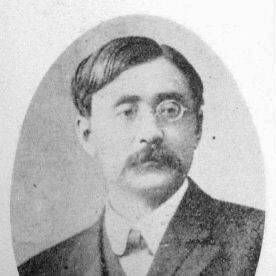
- Occupations
- Esperantistpoliticianlexicographereconomistlinguist
- Biography
-
Nitobe Inazō was a Japanese agronomist, diplomat, political scientist, politician, and writer. He studied at Sapporo Agricultural College under the influence of its first president William S. Clark and later went to the United States to study agricultural policy. After returning to Japan, he served as a professor at Sapporo Agricultural College, Kyoto Imperial University, and Tokyo Imperial University, and the deputy secretary general of the League of Nations. He also devoted himself to women's education, helping to found the Tsuda Eigaku Juku and serving as the first president of Tokyo Woman's Christian University and president of the Tokyo Women's College of Economics. He was also a strong advocate for Japanese colonialism, and described Korean people as "primitive".
-
Johann Joachim Winckelmann
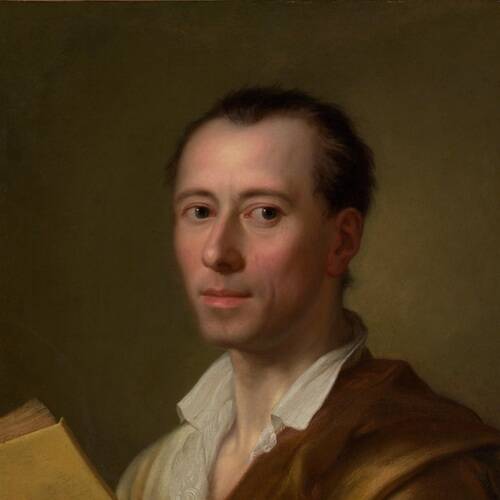
- Enrolled in the Martin Luther University of Halle-Wittenberg
- 1738-1740 studied theology
- Occupations
- historianarchaeologistin-home tutorwriterart historian
- Biography
-
Johann Joachim Winckelmann was a German art historian and archaeologist. He was a pioneering Hellenist who first articulated the differences between Greek, Greco-Roman and Roman art. "The prophet and founding hero of modern archaeology", Winckelmann was one of the founders of scientific archaeology and first applied the categories of style on a large, systematic basis to the history of art. Many consider him the father of the discipline of art history. He was one of the first to separate Greek Art into periods, and time classifications.
-
Paul Tillich

- Enrolled in the Martin Luther University of Halle-Wittenberg
- Studied in 1912
- Occupations
- philosopheruniversity teachertheologian
- Biography
-
Paul Johannes Tillich was a German-American Christian existentialist philosopher, religious socialist, and Lutheran theologian who was one of the most influential theologians of the twentieth century. Tillich taught at German universities before immigrating to the United States in 1933, where he taught at Union Theological Seminary, Harvard University, and the University of Chicago.
-
Joseph von Eichendorff
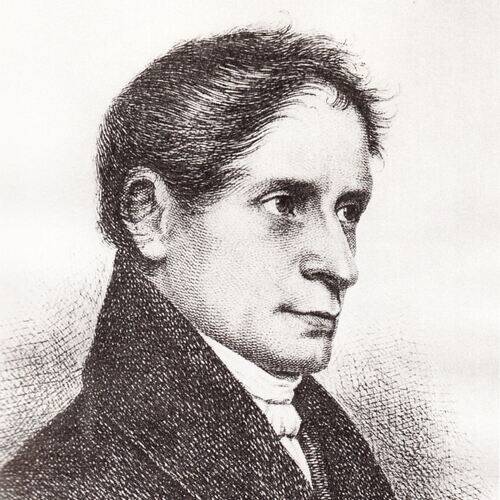
- Enrolled in the Martin Luther University of Halle-Wittenberg
- 1805-1806 studied jurisprudence
- Occupations
- poet lawyerplaywrightwritertranslatornovelist
- Biography
-
Joseph Freiherr von Eichendorff was a German poet, novelist, playwright, literary critic, translator, and anthologist. Eichendorff was one of the major writers and critics of Romanticism. Ever since their publication and up to the present day, some of his works have been very popular in German-speaking Europe.
-
Friedrich Schleiermacher
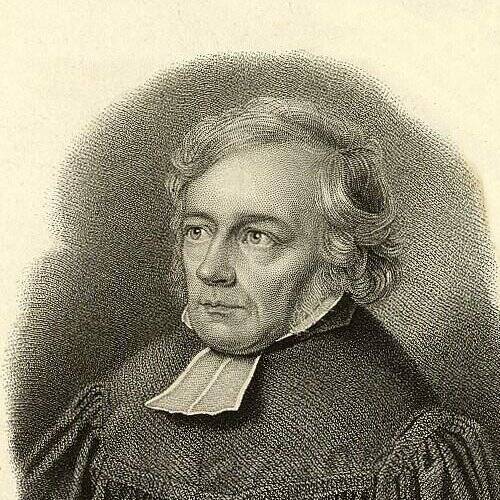
- Occupations
- philosopherpedagoguewritertranslatoruniversity teacher
- Biography
-
Friedrich Daniel Ernst Schleiermacher was a German Reformed theologian, philosopher, and biblical scholar known for his attempt to reconcile the criticisms of the Enlightenment with traditional Protestant Christianity. He also became influential in the evolution of higher criticism, and his work forms part of the foundation of the modern field of hermeneutics. Because of his profound effect on subsequent Christian thought, he is often called the "Father of Modern Liberal Theology" and is considered an early leader in liberal Christianity. The neo-orthodoxy movement of the twentieth century, typically (though not without challenge) seen to be spearheaded by Karl Barth, was in many ways an attempt to challenge his influence. As a philosopher he was a leader of German Romanticism.
-
Hermann Ebbinghaus
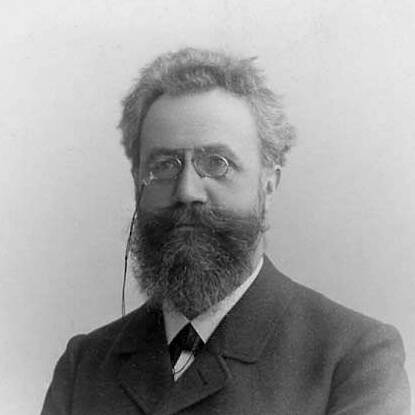
- Occupations
- psychologistuniversity teacherpedagogue
- Biography
-
Hermann Ebbinghaus was a German psychologist who pioneered the experimental study of memory. Ebbinghaus discovered the forgetting curve and the spacing effect. He was the first person to describe the learning curve. He was the father of the neo-Kantian philosopher Julius Ebbinghaus.
-
Ľudovít Štúr
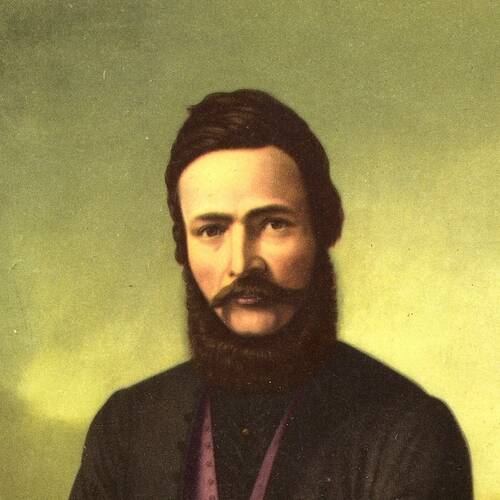
- Occupations
- opinion journalistpoliticianwriterhistorianphilologist
- Biography
-
Ľudovít Štúr, also known as Ľudovít Velislav Štúr, was a Slovak revolutionary, politician, and writer. As a leader of the Slovak national revival in the 19th century, and the author of the Slovak language standard, he is lauded as one of the most important figures in Slovak history.
-
George Müller

- Occupations
- missionary
- Biography
-
George Müller was a Christian evangelist and the director of the Ashley Down orphanage in Bristol, England. He was one of the founders of the Plymouth Brethren movement. Later during the split, his group was called the Open Brethren.
-
Rudolf Clausius
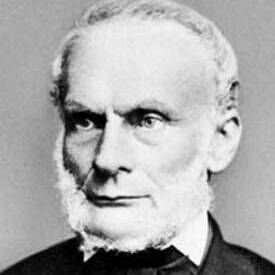
- Occupations
- university teachermathematiciantheoretical physicistphysicist
- Biography
-
Rudolf Julius Emanuel Clausius was a German physicist and mathematician and is considered one of the central founding fathers of the science of thermodynamics. By his restatement of Sadi Carnot's principle known as the Carnot cycle, he gave the theory of heat a truer and sounder basis. His most important paper, "On the Moving Force of Heat", published in 1850, first stated the basic ideas of the second law of thermodynamics. In 1865 he introduced the concept of entropy. In 1870 he introduced the virial theorem, which applied to heat.
-
Mikael Agricola
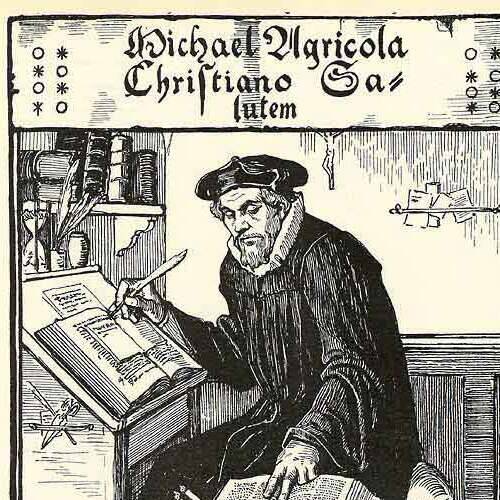
- Occupations
- linguistpoetBible translatortranslatortheologian
- Biography
-
Mikael Agricola was a Finnish Lutheran clergyman who became the de facto founder of literary Finnish and a prominent proponent of the Protestant Reformation in Sweden, including Finland, which was a Swedish territory at the time. He is often called the "father of literary Finnish".
-
Sven Hedin
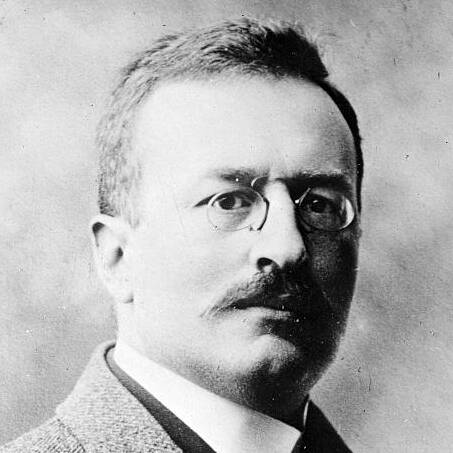
- Occupations
- writerpoliticiangeographerexplorerphotographer
- Biography
-
Sven Anders Hedin, KNO1kl RVO, was a Swedish geographer, topographer, explorer, photographer, travel writer and illustrator of his own works. During four expeditions to Central Asia, he made the Transhimalaya known in the West and located sources of the Brahmaputra, Indus and Sutlej Rivers. He also mapped lake Lop Nur, and the remains of cities, grave sites and the Great Wall of China in the deserts of the Tarim Basin. In his book Från pol till pol (From Pole to Pole), Hedin describes a journey through Asia and Europe between the late 1880s and the early 1900s. While traveling, Hedin visited Turkey, the Caucasus, Tehran, Iraq, lands of the Kyrgyz people and the Russian Far East, India, China and Japan. The posthumous publication of his Central Asia Atlas marked the conclusion of his life's work.
-
Carl Ritter
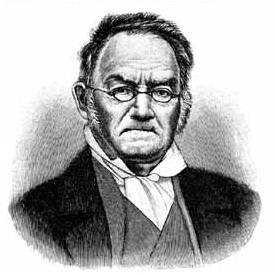
- Occupations
- university teachergeographerexplorerbotanist
- Biography
-
Carl Ritter was a German geographer. Along with Alexander von Humboldt, he is considered one of the founders of modern geography, as they established it as an independent scientific discipline. From 1825 until his death, he occupied the first chair in geography at the University of Berlin.
-
Clemens Brentano
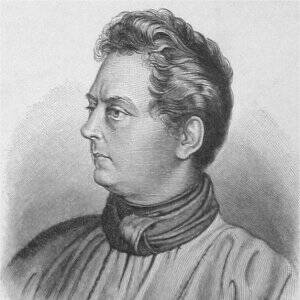
- Occupations
- collector of fairy taleswriterplaywrightpoet
- Biography
-
Clemens Wenzeslaus Brentano was a German poet and novelist, and a major figure of German Romanticism. He was the uncle, via his brother Christian, of Franz and Lujo Brentano.
-
Anton Wilhelm Amo
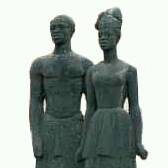
- Occupations
- writeruniversity teacherphilosopher
- Biography
-
Anton Wilhelm Amo or Anthony William Amo was a Nzema philosopher from Axim, Dutch Gold Coast (now Ghana). Amo was a professor at the universities of Halle and Jena in Germany after studying there. He was brought to Germany by the Dutch West India Company in 1707 and was presented as a gift to Dukes Augustus William and Ludwig Rudolf of Brunswick-Wolfenbüttel, being treated as a member of the family by their father Anthony Ulrich, Duke of Brunswick-Wolfenbüttel. In 2020, Oxford University Press published a translation (into English) of his Latin works from the early 1730s.
-
August Ferdinand Möbius
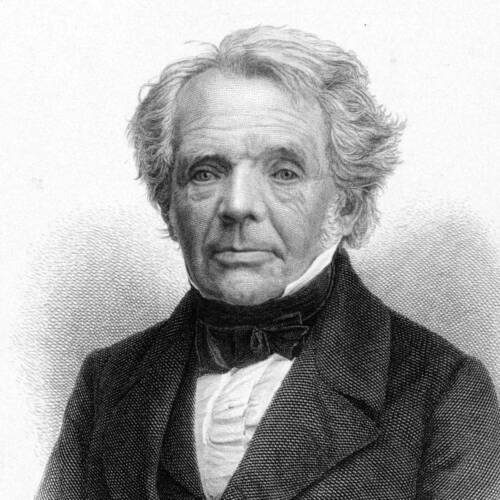
- Occupations
- astronomeruniversity teachermathematician
- Biography
-
August Ferdinand Möbius was a German mathematician and theoretical astronomer.
-
Paul Gerhardt
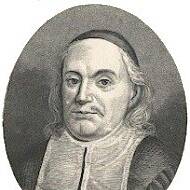
- Occupations
- Lutheran pastorpoettheologianhymnwriterwriter
- Biography
-
Paulus or Paul Gerhardt was a German theologian, Lutheran minister and hymnodist.
-
Ludwig Tieck
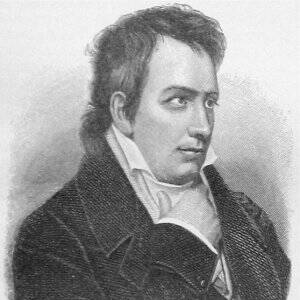
- Occupations
- publishercollector of fairy talesplaywrightliterary criticwriter
- Biography
-
Johann Ludwig Tieck was a German poet, fiction writer, translator, and critic. He was one of the founding fathers of the Romantic movement in the late 18th and early 19th centuries.
-
Gustav Ludwig Hertz
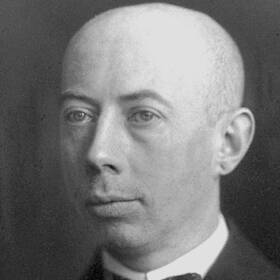
- Occupations
- physicistuniversity teacher
- Biography
-
Gustav Ludwig Hertz was a German physicist and a Nobel laureate in Physics for his work on inelastic electron collisions in gases.
-
Horst Schumann
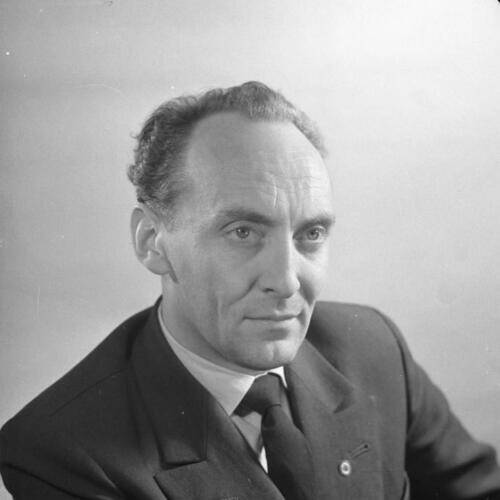
- Occupations
- military physician
- Biography
-
Horst Schumann was an SS-Sturmbannführer (major) and medical doctor who conducted sterilization and castration experiments at Auschwitz and was particularly interested in the mass sterilization of Jews by means of X-rays.
-
Robert Michels
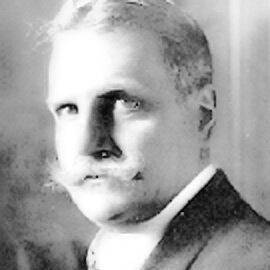
- Occupations
- philosophersociologistuniversity teacher
- Biography
-
Robert Michels was a German-born Italian sociologist who contributed to elite theory by describing the political behavior of intellectual elites.
-
Nicolaus Zinzendorf
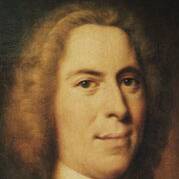
- Occupations
- reformatorpriesttheologianwriterProtestant reformer
- Biography
-
Nikolaus Ludwig, Reichsgraf von Zinzendorf und Pottendorf was a German religious and social reformer, bishop of the Moravian Church, founder of the Herrnhuter Brüdergemeine, Christian mission pioneer and a major figure of 18th-century Protestantism.
-
Wilhelm Eduard Weber
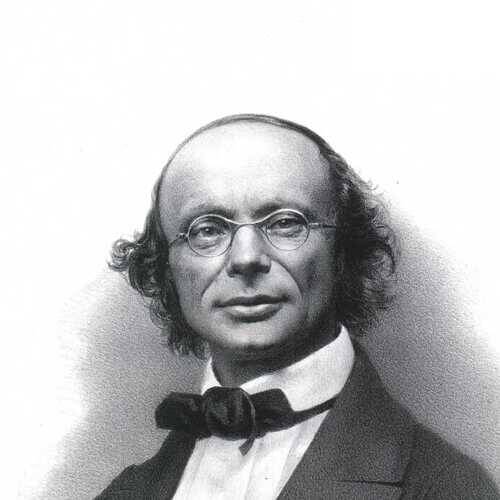
- Occupations
- philosopherphysicistuniversity teacher
- Biography
-
Wilhelm Eduard Weber was a German physicist and, together with Carl Friedrich Gauss, inventor of the first electromagnetic telegraph.
-
Peter Simon Pallas
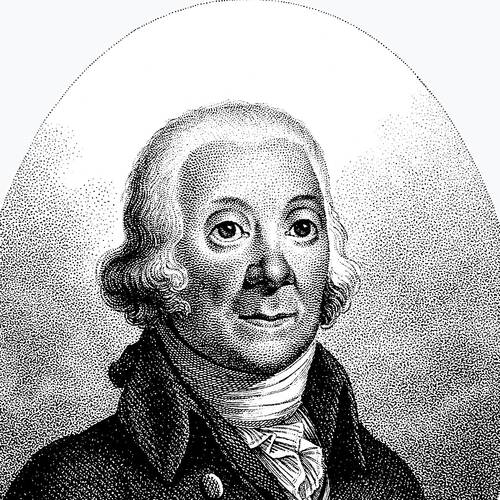
- Occupations
- geographerphysicianbotanistexplorerzoologist
- Biography
-
Peter Simon Pallas FRS FRSE was a Prussian zoologist, botanist, ethnographer, explorer, geographer, geologist, natural historian, and taxonomist. He studied natural sciences at various universities in early modern Germany and worked primarily in the Russian Empire between 1767 and 1810.
-
Alfred Kerr
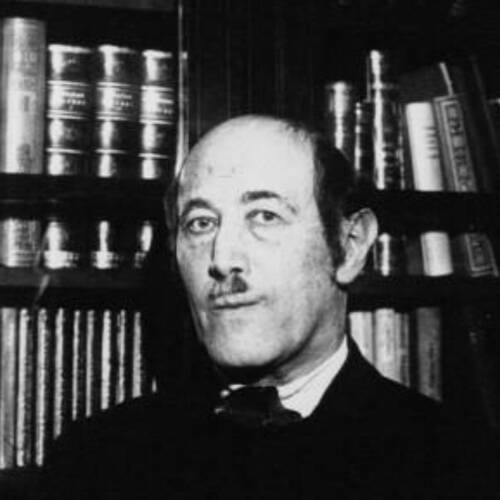
- Enrolled in the Martin Luther University of Halle-Wittenberg
- In 1894 graduated with Doctor of Philosophy
- Occupations
- writertheatre criticlibrettistopinion journalistjournalist
- Biography
-
Alfred Kerr was an influential German theatre critic and essayist of Jewish descent, nicknamed the Kulturpapst ("Culture Pope").
-
Heinrich Hoffmann
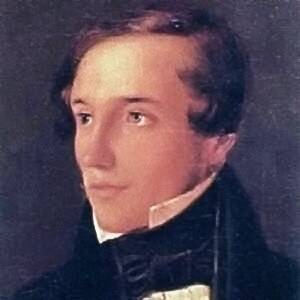
- Occupations
- children's writerpoetpsychiatristwriterillustrator
- Biography
-
Heinrich Hoffmann was a German psychiatrist, who also wrote some short works including Der Struwwelpeter, an illustrated book portraying children misbehaving.
-
Dorothea Erxleben
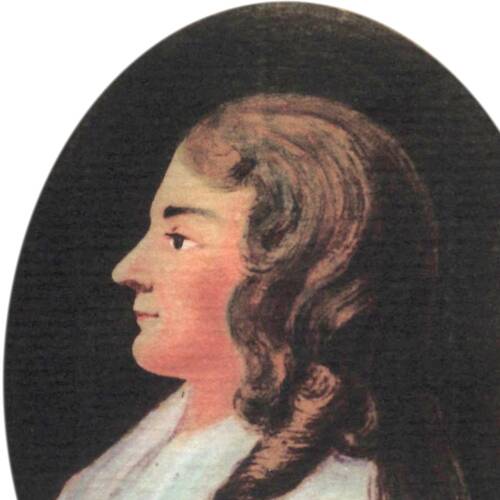
- Occupations
- physician
- Biography
-
Dorothea Christiane Erxleben was a German medical doctor who became the first female doctor of medicine in Germany. Educated by her progressive physician father and rector of her school, she desired to attend medical school and study medicine like her brother. She eventually petitioned Frederick the Great of Prussia to allow her entry into the University of Halle. Despite a Royal permission to attend, Erxleben never entered University. When her cousin died, leaving five children, she decided in 1741, at the age of 26, to look after them, married widower Johann Christian Erxleben and went on to have four children with him.
-
Johanna Quaas
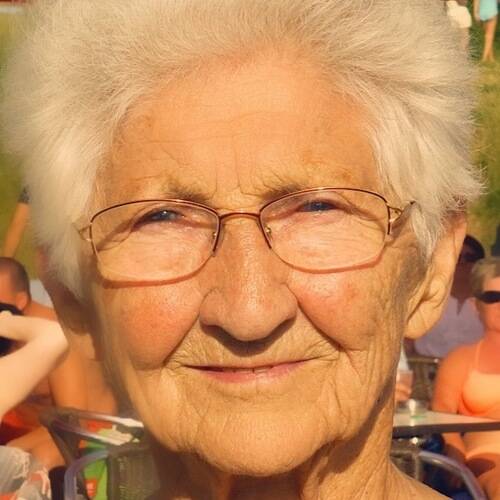
- Occupations
- artistic gymnast
- Biography
-
Johanna Quaas is a German gymnast who, on 12 April 2012, was certified by Guinness World Records as the world's oldest active competitive gymnast. At the age of 86 when breaking the record, Quaas was a regular competitor in the amateur competition Landes-Seniorenspiele (State Senior Games) in Saxony. She became known worldwide when on 26 March 2012, YouTube user LieveDaffy uploaded two videos of Quaas performing gymnastics routines: one on the parallel bars and one on the floor. The clips became viral videos, and within six days of posting had generated over 1.1 million views each. In addition to being recognized by Guinness World Records, Quaas has received the Nadia Comăneci Sportsmanship Award from the International Gymnastics Hall of Fame.
-
Siegbert Tarrasch

- Occupations
- chess playerphysicianwriterchess theoretician
- Biography
-
Siegbert Tarrasch was a German chess player, considered to have been among the strongest players and most influential theoreticians of the late 19th and early 20th century.
-
Ludwig Achim von Arnim
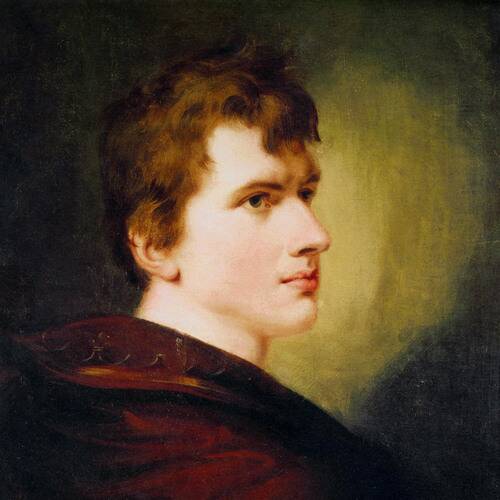
- Occupations
- journalistplaywrightpoet lawyerpoetwriter
- Biography
-
Carl Joachim Friedrich Ludwig von Arnim, better known as Achim von Arnim, was a German poet, novelist, and together with Clemens Brentano and Joseph von Eichendorff, a leading figure of German Romanticism.
-
Hermann Staudinger
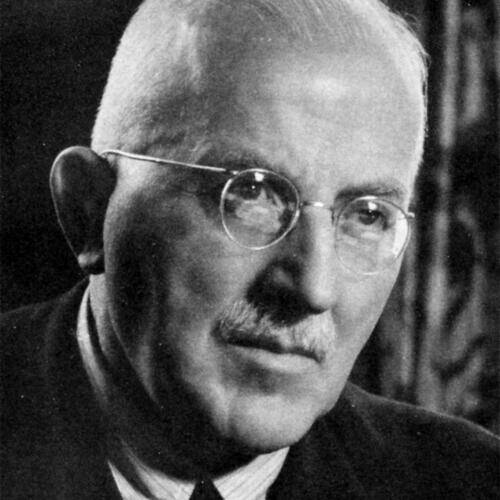
- Occupations
- engineeruniversity teacherchemist
- Biography
-
Hermann Staudinger was a German organic chemist who demonstrated the existence of macromolecules, which he characterized as polymers. For this work he received the 1953 Nobel Prize in Chemistry.
-
Frederick Muhlenberg
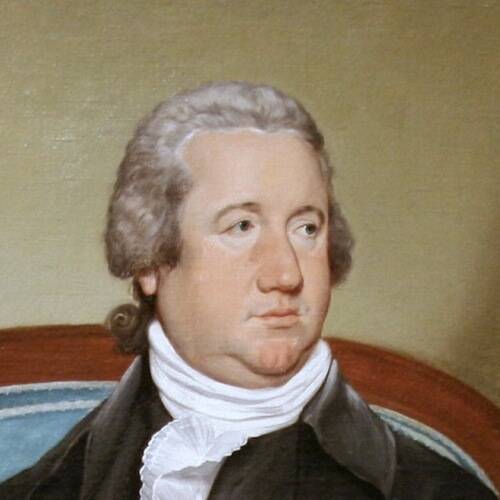
- Occupations
- politician
- Biography
-
Frederick Augustus Conrad Muhlenberg was an American minister and politician who was the first speaker of the United States House of Representatives from 1789 to 1791 and again from 1793 to 1795. Muhlenberg served as the first dean of the United States House of Representatives as well. A member of the Federalist Party, he was delegate to the Pennsylvania state constitutional convention and a member of the U.S. House of Representatives from Pennsylvania and a Lutheran pastor by profession, Muhlenberg was born in Trappe, Pennsylvania. His home, known as the Speaker's House, is now a museum and is currently undergoing restoration to restore its appearance during Muhlenberg's occupancy.
-
Ernst Zermelo
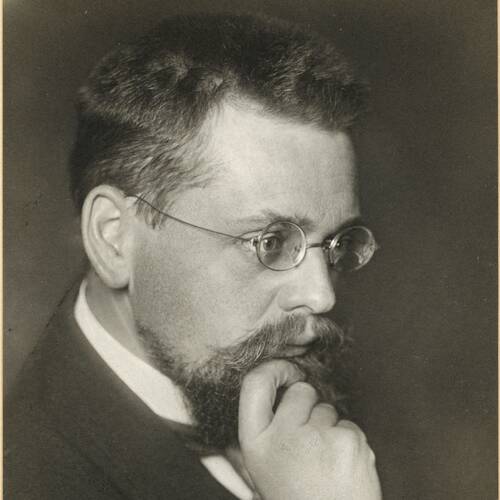
- Occupations
- philosopheruniversity teachermathematician
- Biography
-
Ernst Friedrich Ferdinand Zermelo was a German logician and mathematician, whose work has major implications for the foundations of mathematics. He is known for his role in developing Zermelo–Fraenkel axiomatic set theory and his proof of the well-ordering theorem. Furthermore, his 1929 work on ranking chess players is the first description of a model for pairwise comparison that continues to have a profound impact on various applied fields utilizing this method.
-
Albert Anker
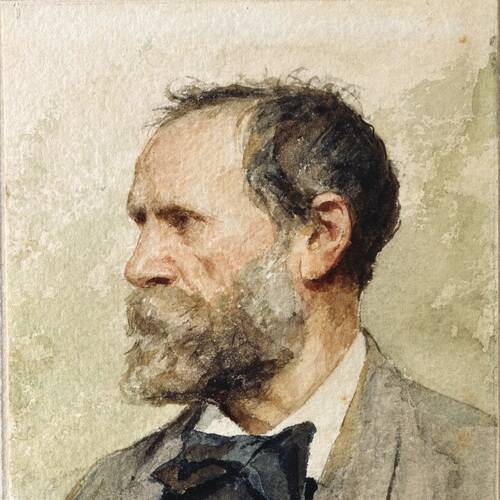
- Occupations
- pottery painterpainterillustrator
- Biography
-
Albert Samuel Anker was a Swiss painter and illustrator who has been called the "national painter" of Switzerland because of his enduringly popular depictions of 19th-century Swiss social life.
-
Ernst Heinrich Weber
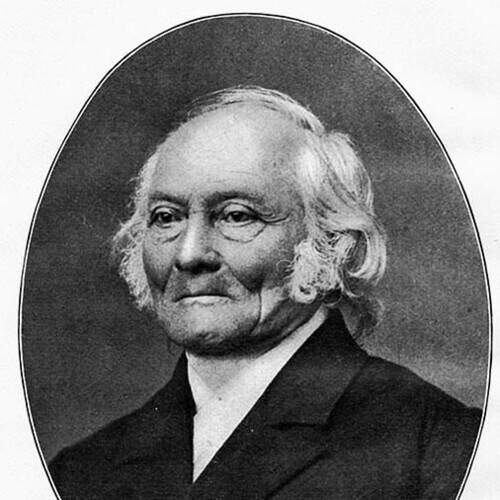
- Occupations
- statisticianphysicianpsychologistastronomeranatomist
- Biography
-
Ernst Heinrich Weber was a German physician who is considered one of the founders of experimental psychology. He was an influential and important figure in the areas of physiology and psychology during his lifetime and beyond. His studies on sensation and touch, along with his emphasis on good experimental techniques led to new directions and areas of study for future psychologists, physiologists, and anatomists.
-
Hermann Grassmann
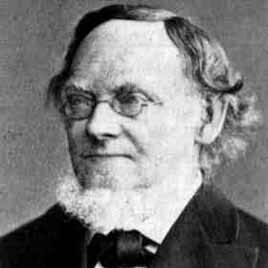
- Occupations
- high-school teacherphysicistlinguistpedagoguetranslator
- Biography
-
Hermann Günther Grassmann was a German polymath known in his day as a linguist and now also as a mathematician. He was also a physicist, general scholar, and publisher. His mathematical work was little noted until he was in his sixties. His work preceded and exceeded the concept which is now known as a vector space. He introduced the Grassmannian, the space which parameterizes all k-dimensional linear subspaces of an n-dimensional vector space V. In linguistics he helped free language history and structure from each other.
-
Andreas Karlstadt
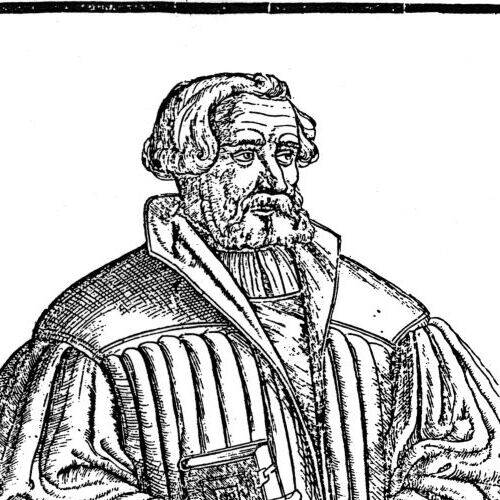
- Occupations
- Protestant reformeruniversity teachertheologian
- Biography
-
Andreas Rudolph Bodenstein von Karlstadt, better known as Andreas Karlstadt, Andreas Carlstadt or Karolostadt, in Latin, Carolstadius, or simply as Andreas Bodenstein, was a German Protestant theologian, University of Wittenberg chancellor, a contemporary of Martin Luther and a reformer of the early Reformation.
-
Karamba Diaby
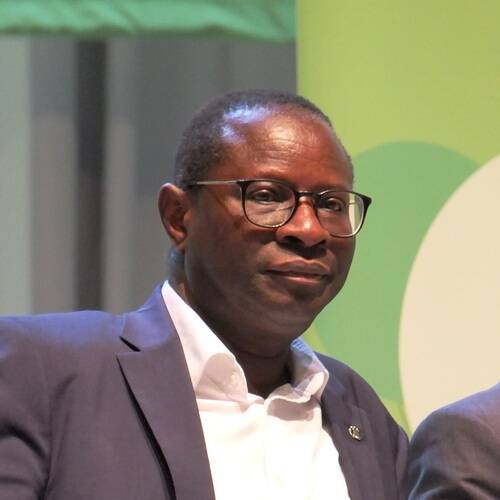
- Enrolled in the Martin Luther University of Halle-Wittenberg
- 1986-1996 graduated with doctor rerum naturalium in chemistry
- Occupations
- politicianchemist
- Biography
-
Karamba Diaby is a Senegalese-born German chemist and politician of the Social Democratic Party who has been serving as a member of the Bundestag since the 2013 elections.
-
Hermann Cohen
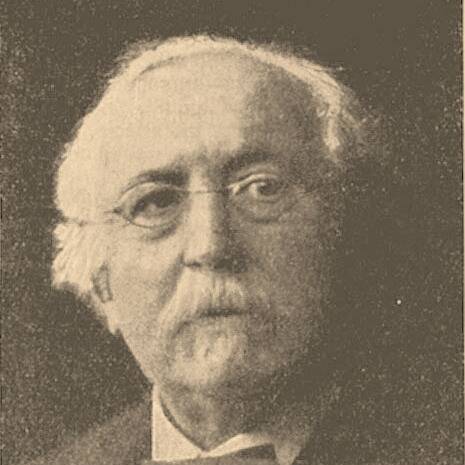
- Occupations
- philosopheruniversity teacheracademic
- Biography
-
Hermann Cohen was a German philosopher, one of the founders of the Marburg school of neo-Kantianism, and he is often held to be "probably the most important Jewish philosopher of the nineteenth century".
-
Paul Luther
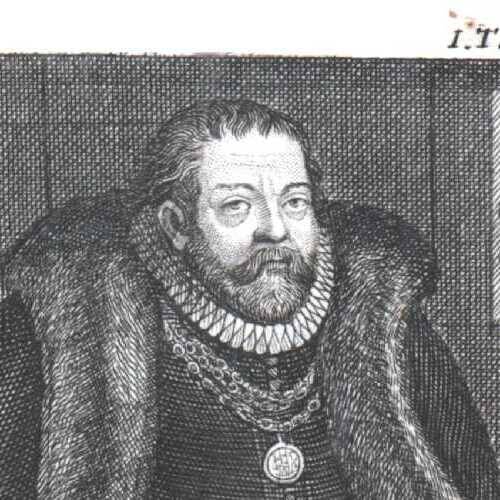
- Occupations
- physicianuniversity teacherchemist
- Biography
-
Paul Luther was a German physician, medical chemist, and alchemist. He was the third son of the German Protestant Reformer Martin Luther and was successively physician to John Frederick II, Duke of Saxony; Joachim II Hector, Elector of Brandenburg; Augustus, Elector of Saxony and his successor Christian I, Elector of Saxony. He taught alchemy to Anne of Denmark.
-
Jan Jesenius
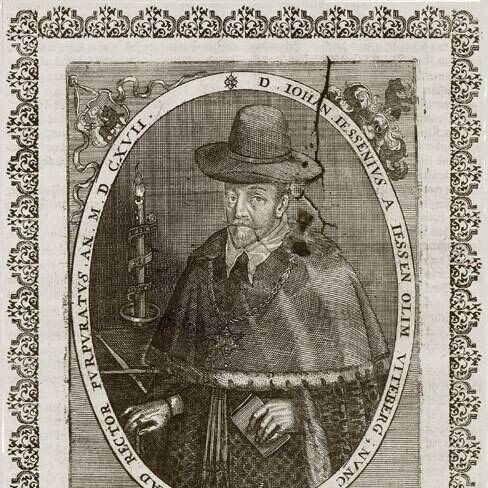
- Occupations
- philosopherphysiciandiplomatpedagoguewriter
- Biography
-
Jan Jesenius, also written as Jessenius, was a Bohemian physician, politician and philosopher.
-
Georg Wilhelm Richmann
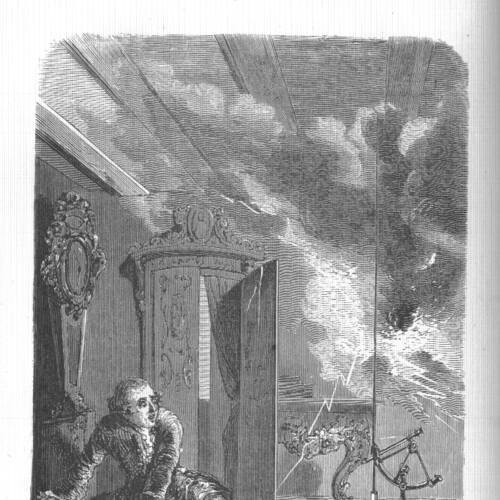
- Occupations
- physicistinventor
- Biography
-
Georg Wilhelm Richmann was a Russian physicist of Baltic German origin who did pioneering work on electricity, atmospheric electricity, and calorimetry. He died by electrocution in St. Petersburg when struck by apparent ball lightning produced by an experiment attempting to ground the electrical discharge from a storm.
-
Ernst Kummer
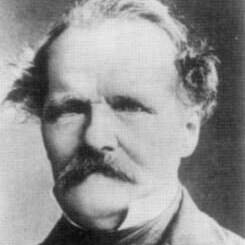
- Enrolled in the Martin Luther University of Halle-Wittenberg
- Studied in 1828
- Occupations
- mathematicianuniversity teacher
- Biography
-
Ernst Eduard Kummer was a German mathematician. Skilled in applied mathematics, Kummer trained German army officers in ballistics; afterwards, he taught for 10 years in a gymnasium, the German equivalent of high school, where he inspired the mathematical career of Leopold Kronecker.
-
Andrej Sládkovič
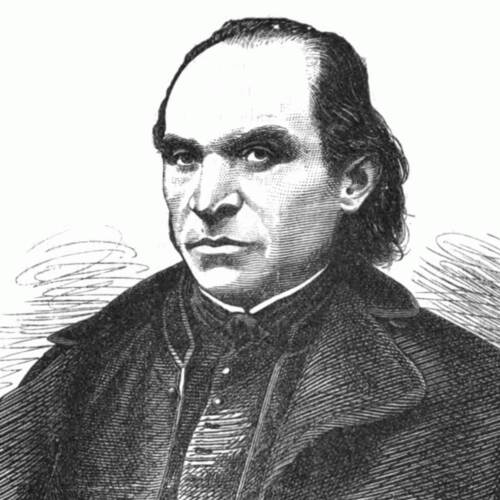
- Occupations
- translatorjournalistpoetcriticwriter
- Biography
-
Andrej Sládkovič was a Slovak poet, critic, publicist, translator and Lutheran priest.
-
Friedrich Mohs
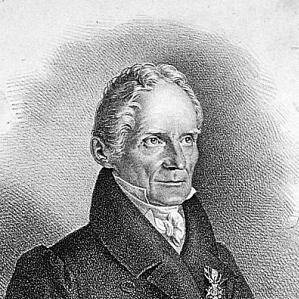
- Occupations
- university teacherphysicistcrystallographermineralogistmining engineer
- Biography
-
Carl Friedrich Christian Mohs was a German chemist and mineralogist. He was the creator of the Mohs scale of mineral hardness. Mohs also introduced a classification of the crystal forms in crystal systems independently of Christian Samuel Weiss.
-
Carl Loewe
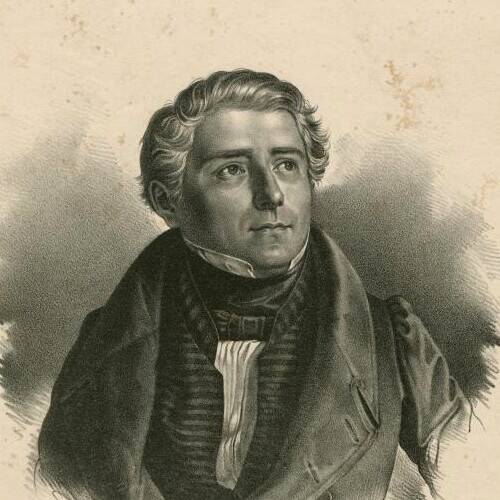
- Enrolled in the Martin Luther University of Halle-Wittenberg
- Studied in 1817
- Occupations
- organisthigh-school teachersingercantorconductor
- Biography
-
Johann Carl Gottfried Loewe, usually called Carl Loewe (sometimes seen as Karl Loewe), was a German composer, tenor singer and conductor. In his lifetime, his songs ("Balladen") were well enough known for some to call him the "Schubert of North Germany", and Hugo Wolf came to admire his work. He is less known today, but his ballads and songs, which number over 400, are occasionally performed.
-
Sarah Kirsch
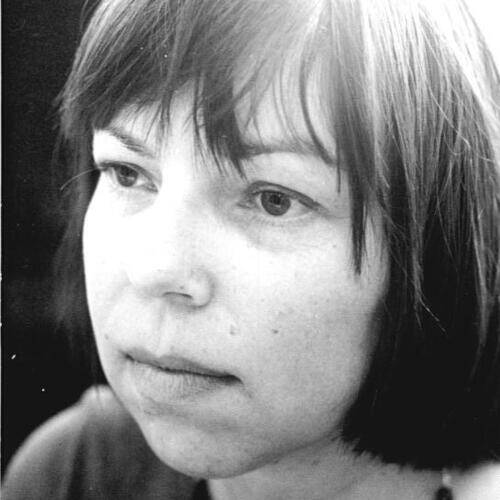
- Occupations
- writertranslatorchildren's writerpoet
- Biography
-
Sarah Kirsch was a German poet.
-
Carl Gotthard Langhans
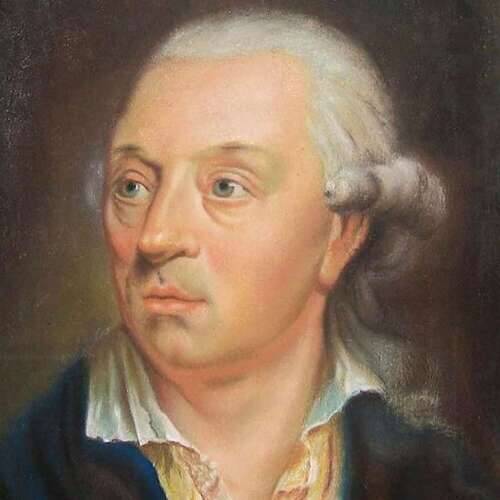
- Occupations
- architectgeneral contractor
- Biography
-
Carl Gotthard Langhans was a Prussian master builder and royal architect. His churches, palaces, grand houses, interiors, city gates and theatres in Silesia (now Poland), Berlin, Potsdam and elsewhere belong to the earliest examples of Neoclassical architecture in Germany. His best-known work is the Brandenburg Gate in Berlin, national symbol of today’s Germany and German reunification in 1989/90.
-
Matthias Bel
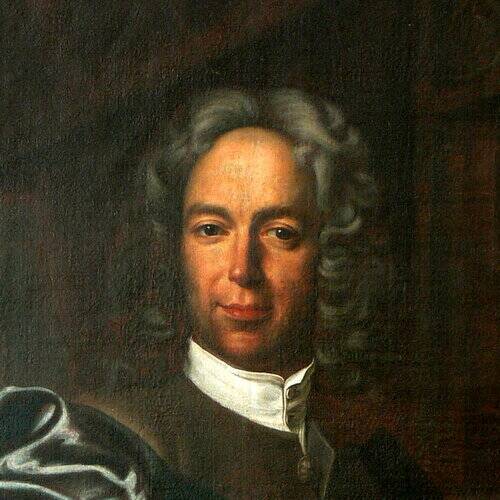
- Occupations
- philosopherhistorianpoetwritertheologian
- Biography
-
Matthias Bel or Matthias Bél was a Lutheran pastor and polymath from the Kingdom of Hungary. Bel was active in the fields of pedagogy, philosophy, philology, history, and theoretical theology; he was the founder of Hungarian geographic science and a pioneer of descriptive ethnography and economy. A leading figure in pietism. He is also known as the Great Ornament of Hungary (Magnum decus Hungariae).
-
August Hermann Francke
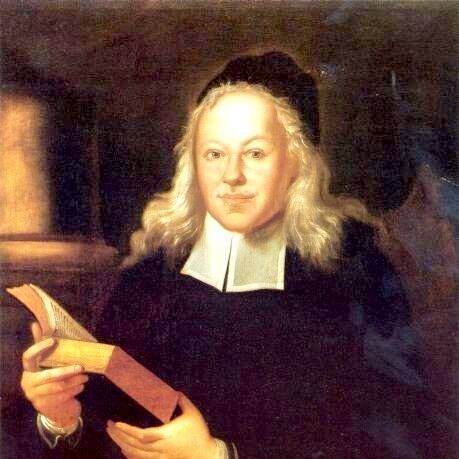
- Occupations
- university teachertheologianpedagogue
- Biography
-
August Hermann Francke was a German Lutheran clergyman, theologian, philanthropist, and Biblical scholar. His evangelistic fervour and pietism got him expelled as lecturer from the universities of Dresden and Leipzig and as deacon from Erfurt. In 1691 he found his calling at the University of Halle, where he turned towards the education of underprivileged children; he founded an orphan asylum, a Latin school, a German school (or burgher school), a Gynaeceum, the first Protestant higher girls school, and a seminary for training teachers. Francke's schools provided a prototype, which greatly influenced later German education.
-
Gustav Hermann Nachtigal
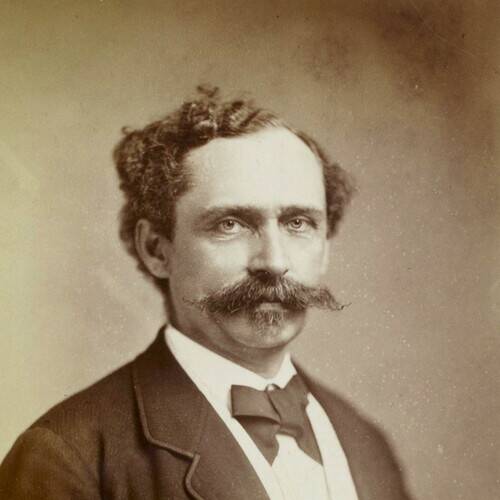
- Occupations
- botanistwriterexplorerbotanical collector
- Biography
-
Gustav Nachtigal was a German military surgeon and explorer of Central and West Africa. He is further known as the German Empire's consul-general for Tunisia and Commissioner for West Africa. His mission as commissioner resulted in Togoland and Kamerun becoming the first colonies of a German colonial empire. The Gustav-Nachtigal-Medal, awarded by the Berlin Geographical Society, is named after him.
-
Vydūnas
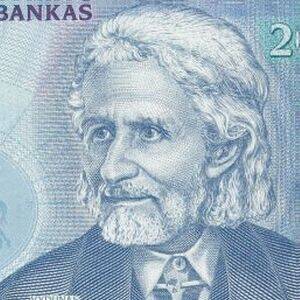
- Occupations
- writerpoetphilosopher
- Biography
-
Wilhelm Storost, artistic name Vilius Storostas-Vydūnas, mostly known as Vydūnas, was a Prussian-Lithuanian teacher, poet, humanist, philosopher and Lithuanian writer, a leader of the Prussian Lithuanian national movement in Lithuania Minor, and one of leaders of the theosophical movement in East Prussia.
-
Johann Christoph Friedrich GutsMuths
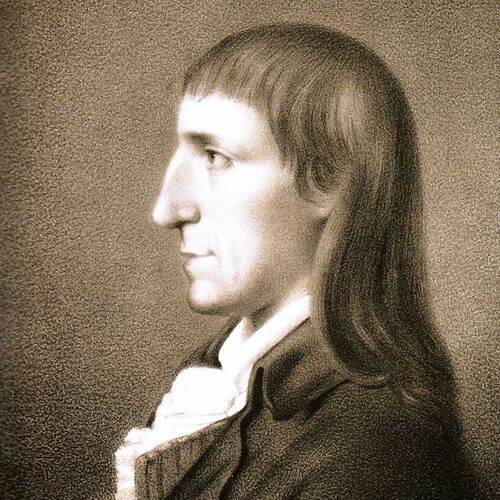
- Occupations
- pedagogueteachergeographernon-fiction writergymnast
- Biography
-
Johann Christoph Friedrich GutsMuths, also called Guts Muth or Gutsmuths, was a teacher and educator in Germany, and is especially known for his role in the development of physical education. He is thought of as the "grandfather of gymnastics" – the "father" being Friedrich Ludwig Jahn. GutsMuths introduced systematic physical exercise into the school curriculum, and he developed the basic principles of artistic gymnastics. GutsMuths is also considered by many to be the father of modern pole vaulting, as he described the jumping standards, the distance of the approach, recommendations on hand grip, and the principles of pole jumping.
-
Georg Joachim Rheticus
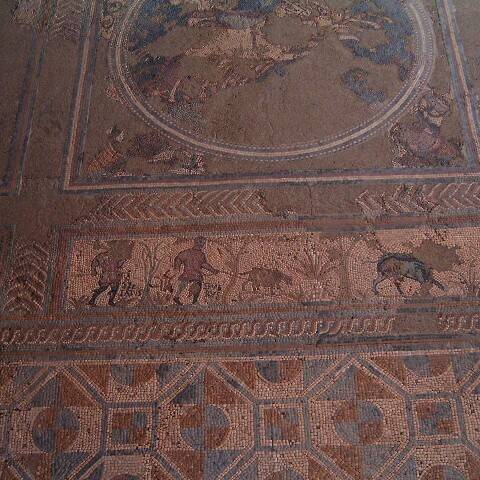
- Enrolled in the Martin Luther University of Halle-Wittenberg
- Studied in 1533-1536
- Occupations
- cartographerphysicianastrologerastronomeruniversity teacher
- Biography
-
Georg Joachim de Porris, also known as Rheticus, was a mathematician, astronomer, cartographer, navigational-instrument maker, medical practitioner, and teacher. He is perhaps best known for his trigonometric tables and as Nicolaus Copernicus's sole pupil. He facilitated the publication of his master's De revolutionibus orbium coelestium (On the Revolutions of the Heavenly Spheres).
-
Friedrich Schorlemmer
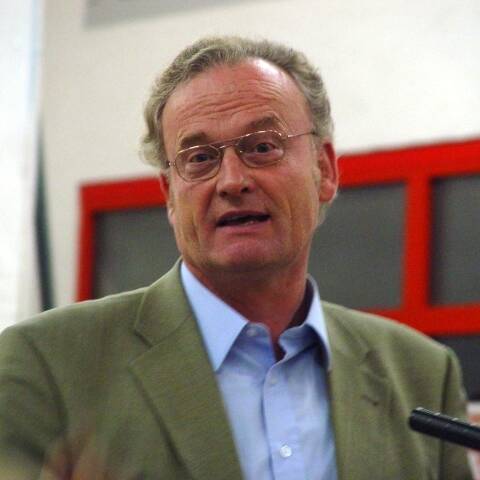
- Occupations
- opinion journalistpoliticianProtestant theologiantheologian
- Biography
-
Friedrich Schorlemmer was a German Protestant theologian. He was a prominent member of the civil rights movement in the German Democratic Republic, leading to the Peaceful Revolution. Remaining active in politics and society after German reunification in 1990, he was engaged in the Wittenberg town council and several organisations as an activist for peace and nature preservation, and as a critical voice.
-
Lutz Seiler
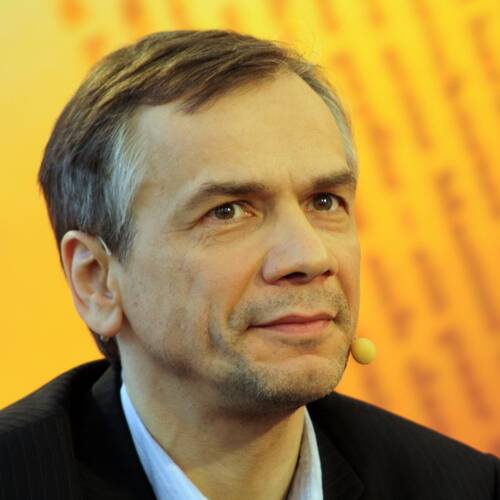
- Occupations
- short story writerwriterpoetnovelist
- Biography
-
Lutz Seiler is a German poet and novelist. Considered one of the most important German poets living today, he is the author of numerous books of poetry, prose, and essays, and gained national attention for his debut novel Kruso. In 2023 he was awarded the Georg Büchner Prize, the most prestigious award for German literature. He has served as the literary director and custodian of the Peter Huchel Museum since 1997.
-
Friedrich Wieck
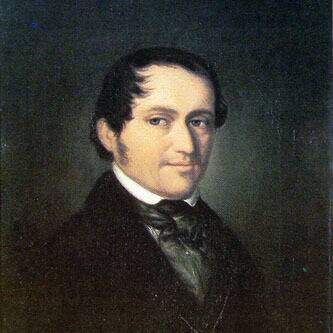
- Enrolled in the Martin Luther University of Halle-Wittenberg
- In 1804 studied theology
- Occupations
- composermusic educatormusic criticpianistmusicologist
- Biography
-
Johann Gottlob Friedrich Wieck was a noted German piano teacher, voice teacher, owner of a piano store, and author of essays and music reviews. He is remembered as the teacher of his daughter, Clara, a child prodigy who was undertaking international concert tours by age eleven and who later married her father's pupil Robert Schumann, in defiance of her father's extreme objections. As Clara Schumann, she became one of the most famous pianists of her time. Another of Wieck's daughters, Marie Wieck, also had a career in music, although not nearly so illustrious as Clara's. Other pupils included Hans von Bülow.
-
Carolus Clusius
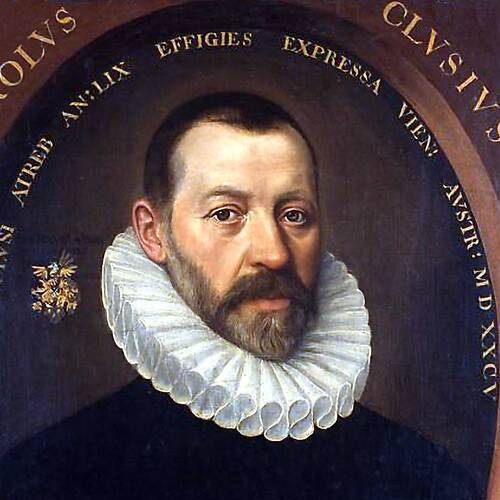
- Occupations
- translatorornithologistmycologistuniversity teacherzoologist
- Biography
-
Charles de l'Écluse, L'Escluse, or Carolus Clusius, seigneur de Watènes, was an Artois doctor and pioneering botanist, perhaps the most influential of all 16th-century scientific horticulturists.
-
Friedrich Georg Jünger
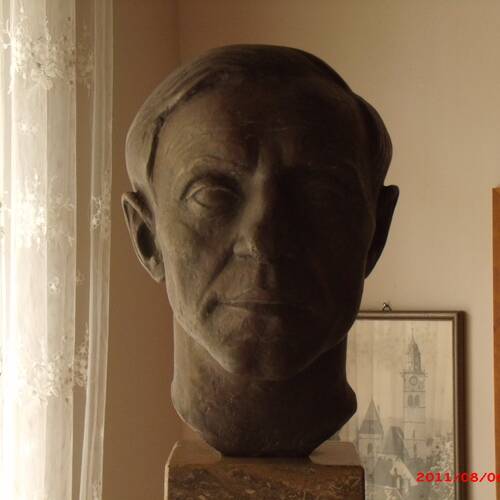
- Occupations
- philosopherwritertranslatorpoet lawyer
- Biography
-
Friedrich "Fritz" Georg Jünger was a German writer and lawyer. He wrote poetry, cultural criticism and novels. He was the younger brother of Ernst Jünger.
-
Arthur Ruppin
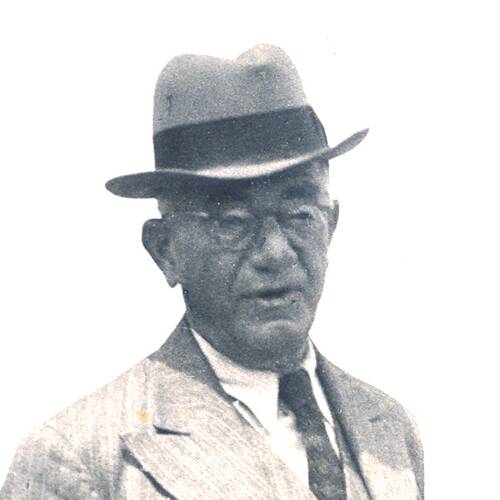
- Occupations
- politicianphilosopherpedagogueeconomistdemographer
- Biography
-
Arthur Ruppin was a German Zionist and one of the founders of the city of Tel Aviv. Appointed director of Berlin's Bureau for Jewish Statistics (Büro für Statistik der Juden) in 1904, he moved to Palestine in 1907, and from 1908 was the director of the Palestine Office of the Zionist Organization in Jaffa, organizing Zionist immigration to Palestine. In 1926, Ruppin joined the faculty of the Hebrew University of Jerusalem and founded the Department for the Sociology of the Jews. Described posthumously as the "founder of German-Jewish demography" and "father of Israeli sociology", his best-known sociological work was The Jews in the Modern World (1934). He was also a proponent of pseudoscientific race theory.
-
Bernhard von Gudden
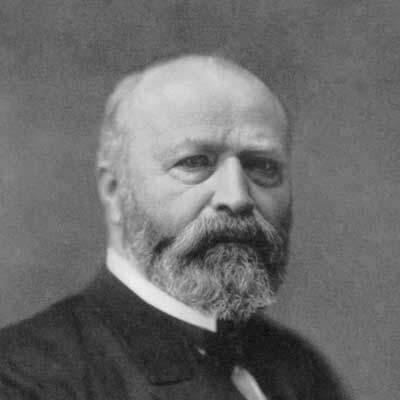
- Occupations
- anatomistneurologistpsychiatristuniversity teacher
- Biography
-
Johann Bernhard Aloys von Gudden was a German neuroanatomist and psychiatrist born in Kleve.
-
Johann Christoph Adelung
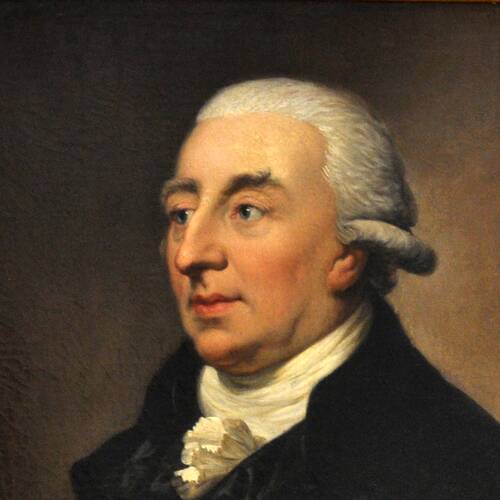
- Occupations
- linguistwritertranslatorlexicographerlibrarian
- Biography
-
Johann Christoph Adelung was a German grammarian and philologist.
-
Franz Hermann Schulze-Delitzsch
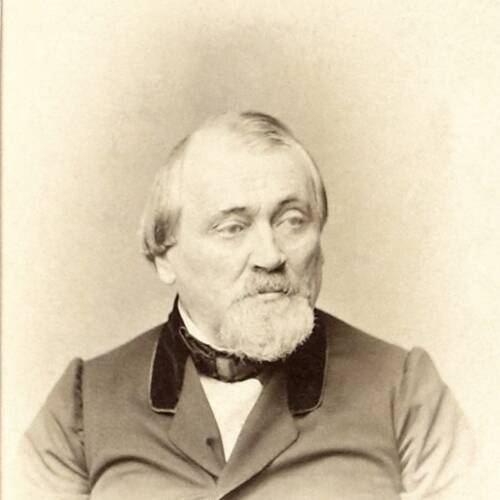
- Occupations
- economistbankerpoliticianwriterjurist
- Biography
-
Franz Hermann Schulze-Delitzsch, also Hermann Schulze, was a German politician and economist. He was responsible for the organizing of the world's first credit unions. He was also co-founder of the German Progress Party.
-
Philip Schaff

- Occupations
- translatorwriterBible translatortheologianchurch historian
- Biography
-
Philip Schaff was a Swiss-born, German-educated Protestant theologian and ecclesiastical historian, who spent most of his adult life living and teaching in the United States.
-
Wilhelm Heinrich Solf
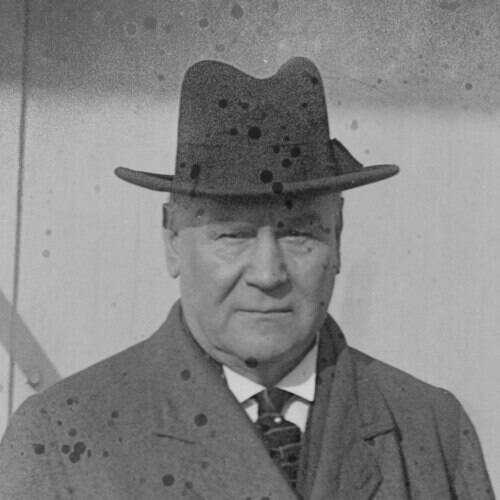
- Occupations
- physicianorientalistpoliticiandiplomatjurist
- Biography
-
Wilhelm Heinrich Solf was a German scholar, diplomat, jurist and statesman.
-
Johann Reinhold Forster
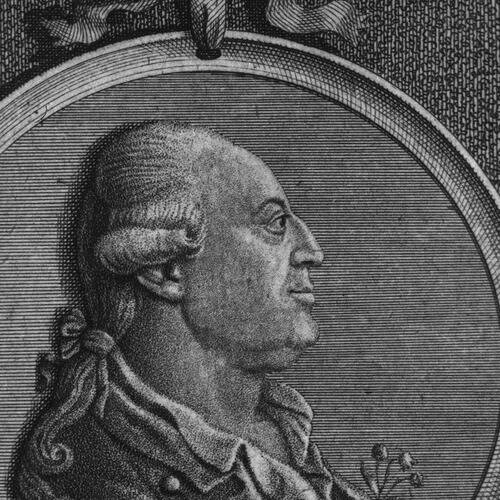
- Occupations
- travelernaturalistexplorertheologianichthyologist
- Biography
-
Johann Reinhold Forster was a German Reformed pastor and naturalist. Born in Dirschau, Pomeranian Voivodeship, Polish–Lithuanian Commonwealth (now Tczew, Poland), he attended school in Dirschau and Marienwerder before being admitted at the Joachimsthalsches Gymnasium in Berlin in 1745. Skilled in classical and biblical languages, he studied theology at the University of Halle. In 1753, he became a parson at a parish just south of Danzig. He married his cousin Justina Elisabeth Nicolai in 1754, and they had seven surviving children; the oldest child was George Forster, also known as Georg.
-
Erich von Tschermak
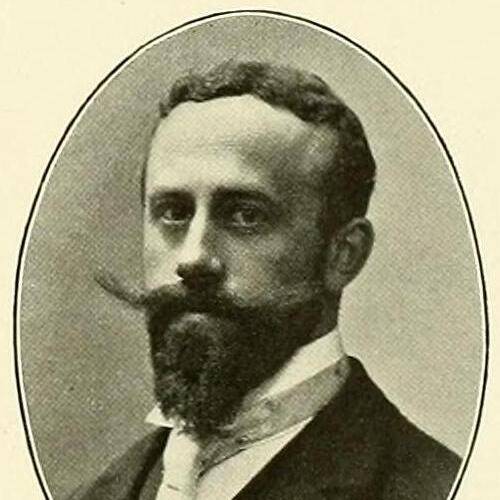
- Occupations
- professorbotanistbiologistfarmergeneticist
- Biography
-
Erich Tschermak, Edler von Seysenegg was an Austrian agronomist who developed several new disease-resistant crops, including wheat-rye and oat hybrids. He was a son of the Moravia-born mineralogist Gustav Tschermak von Seysenegg. His maternal grandfather was the botanist, Eduard Fenzl, who taught Gregor Mendel botany during his student days in Vienna.
-
Adam Ludwig Lewenhaupt
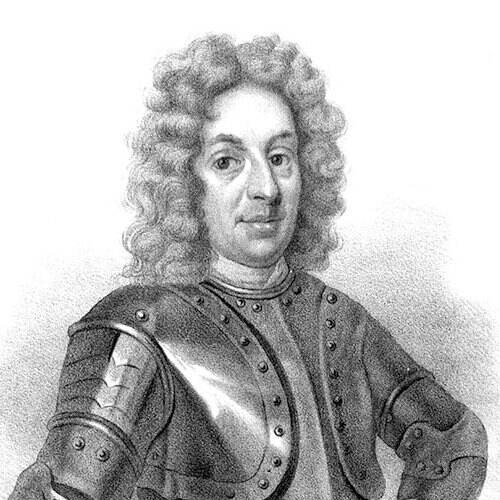
- Occupations
- military personneljurist
- Biography
-
Adam Ludwig Lewenhaupt was a Swedish general, particularly known for his participation in the Great Northern War.
-
Johannes Popitz
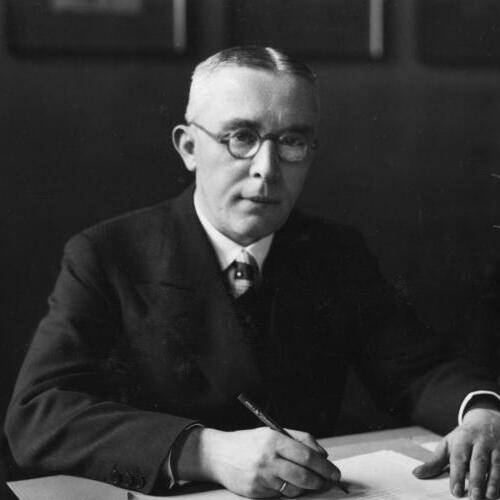
- Occupations
- resistance fighterpoliticianeconomistjurist
- Biography
-
Hermann Eduard Johannes Popitz was a Prussian lawyer, finance minister and a member of the German Resistance against the government of Nazi Germany. He was the father of Heinrich Popitz, an important German sociologist.
-
Ernest I, Duke of Brunswick-Lüneburg
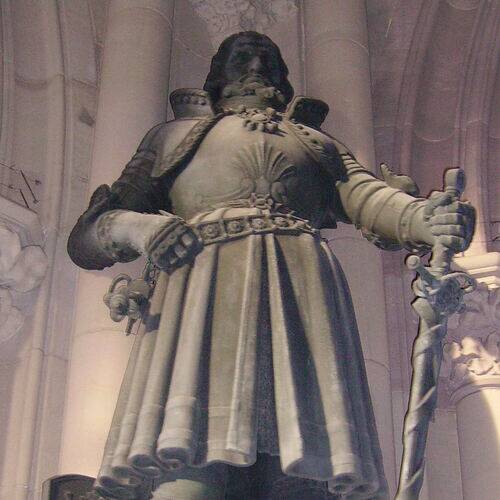
- Occupations
- aristocrat
- Biography
-
Ernest of Brunswick-Lüneburg, also frequently called Ernest the Confessor, was duke of Brunswick-Lüneburg and a champion of the Protestant cause during the early years of the Protestant Reformation. He was the Prince of Lüneburg and ruled the Lüneburg-Celle subdivision of the Welf family's Brunswick-Lüneburg duchy from 1520 until his death.
-
Franz Wilhelm Junghuhn
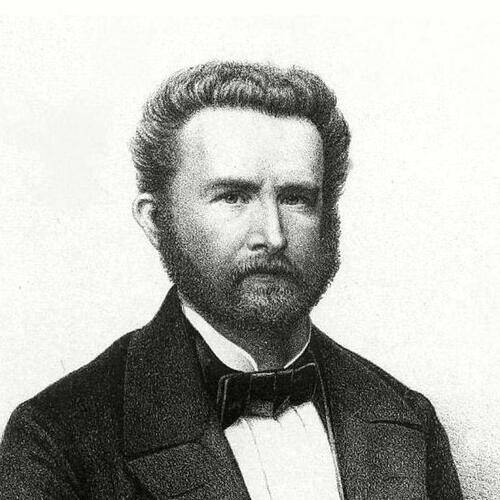
- Occupations
- photographerphysicianbotanistgeologistvolcanologist
- Biography
-
Friedrich Franz Wilhelm Junghuhn was a German-born Dutch botanist and geologist. His father, Friedrich Junghuhn was a barber and a surgeon. His mother was Christine Marie Schiele. Junghuhn studied medicine in Halle and in Berlin from 1827 to 1831, meanwhile publishing a seminal paper on mushrooms in Linnaea. Ein Journal für Botanik.
-
Joachim Heinrich Campe
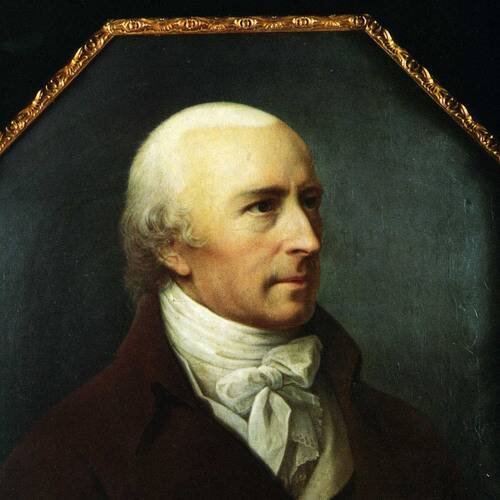
- Occupations
- philosopherlexicographerwritertheologianpublisher
- Biography
-
Joachim Heinrich Campe was a German writer, linguist, educator and publisher. He was a major representative of philanthropinism and the German Enlightenment.
-
Immanuel Bekker
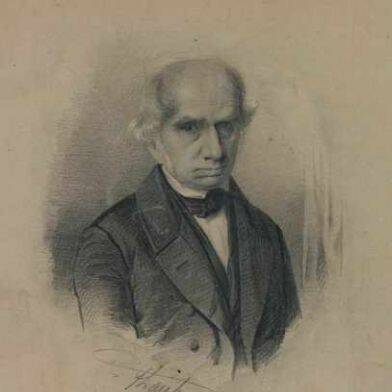
- Occupations
- literary criticuniversity teacherclassical scholarlinguistclassical philologist
- Biography
-
August Immanuel Bekker was a German philologist and critic.
-
Michael Stifel
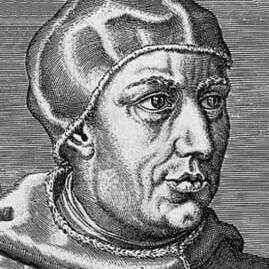
- Occupations
- Protestant theologianparsonwritertheologianuniversity teacher
- Biography
-
Michael Stifel or Styfel was a German monk, Protestant reformer and mathematician. He was an Augustinian who became an early supporter of Martin Luther. He was later appointed professor of mathematics at Jena University.
-
Wilhelm Heinrich Wackenroder
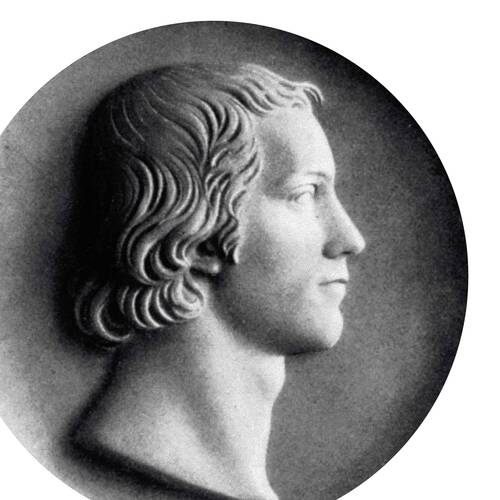
- Occupations
- art historianwriterjuristpoet lawyer
- Biography
-
Wilhelm Heinrich Wackenroder was a German jurist and writer. With Ludwig Tieck and the Schlegel brothers, he co-founded German Romanticism.
-
Johann Christian Daniel von Schreber
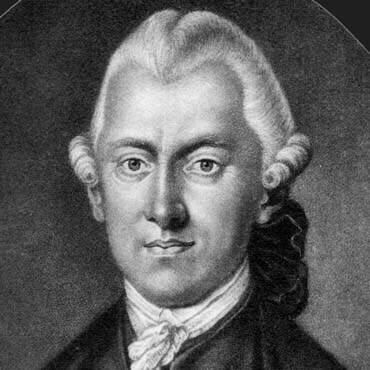
- Occupations
- entomologistphysiciannaturalistbotanistlichenologist
- Biography
-
Johann Christian Daniel von Schreber, often styled J.C.D. von Schreber, was a German naturalist.
-
Franz Ernst Neumann
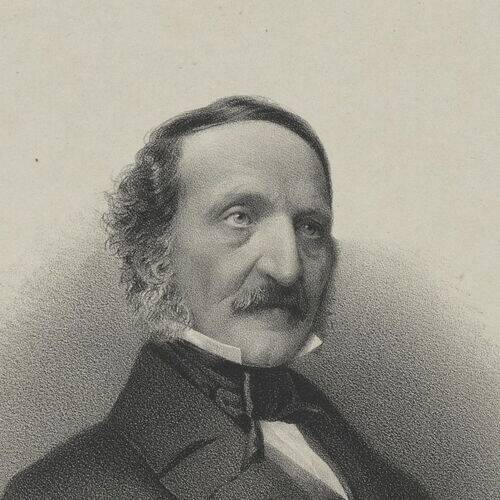
- Occupations
- physicistmilitary volunteeruniversity teachercrystallographermathematician
- Biography
-
Franz Ernst Neumann was a German mineralogist and physicist. He devised the first formulas to calculate inductance. He also formulated Neumann's law for molecular heat. In electromagnetism, he is credited for introducing the magnetic vector potential.
-
George Spalatin
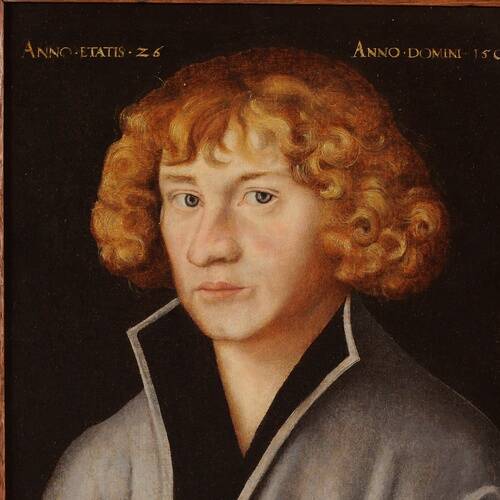
- Occupations
- historiantheologianjurist
- Biography
-
Georg Spalatin ( German: [ˈʃpaːlatiːn]) was the pseudonym taken by Georg Burkhardt ( German: [ˈɡeːɔʁk ˈbʊʁkhaʁt]; 17 January 1484 – 16 January 1545), a German humanist, theologian, reformer, secretary of the Saxon Elector Frederick the Wise, as well as an important figure in the history of the Reformation.
-
Johann Christian Reil
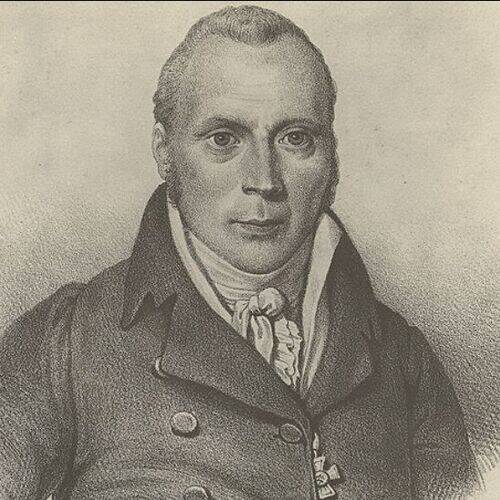
- Occupations
- physiciananatomistpsychiatristphysiologistprofessor
- Biography
-
Johann Christian Reil was a German physician, physiologist, anatomist, and psychiatrist. He coined the term psychiatry – Psychiatrie in German – in 1808.
-
Caspar Friedrich Wolff
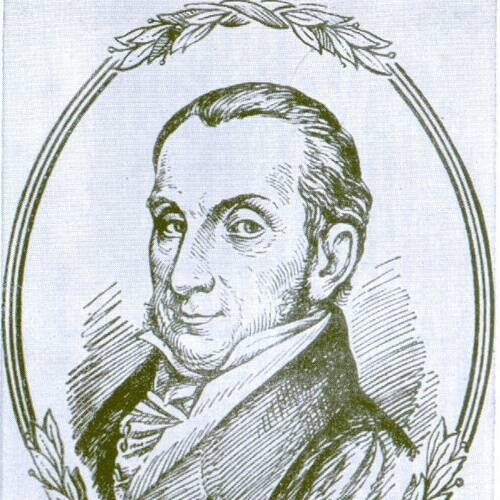
- Occupations
- physiologistzoologistbotanistmilitary physicianuniversity teacher
- Biography
-
Caspar Friedrich Wolff was a German physiologist and embryologist who is widely regarded as one of the pioneers of modern embryology.
-
Dimitri Uznadze
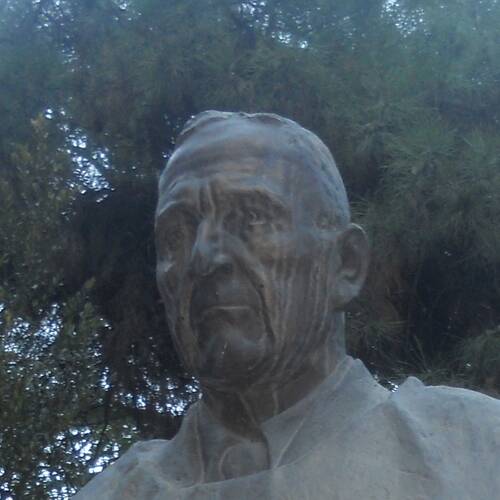
- Occupations
- psychologistuniversity teacherphilosopher
- Biography
-
Dimitri Uznadze was a Georgian psychologist and professor of psychology, co-founder of the Tbilisi State University (TSU) and of the Georgian Academy of Sciences (GAS).
-
Albrecht Ritschl
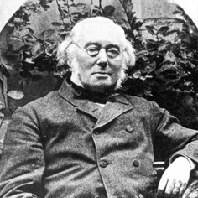
- Occupations
- philosopheruniversity teachertheologian
- Biography
-
Albrecht Benjamin Ritschl was a German Protestant theologian.
-
Karl Adolph von Basedow
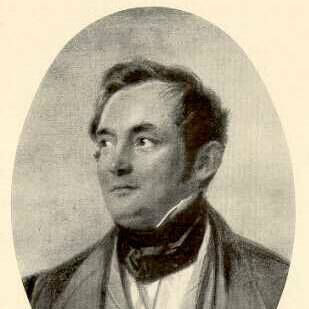
- Occupations
- physician
- Biography
-
Carl Adolph von Basedow was a German physician most famous for reporting the symptoms of what could later be dubbed Graves-Basedow disease, now technically known as exophthalmic goiter.
-
Arnold Ruge
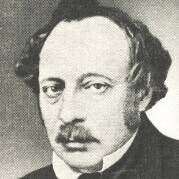
- Occupations
- politicianjournalistautobiographerwritertranslator
- Biography
-
Arnold Ruge was a German philosopher and political writer. He was the older brother of Ludwig Ruge.
-
Ferenc Dávid
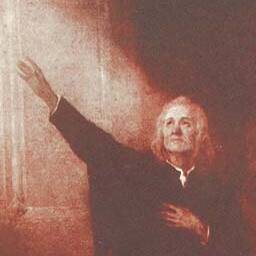
- Enrolled in the Martin Luther University of Halle-Wittenberg
- Studied in 1551
- Occupations
- theologian
- Biography
-
Ferenc Dávid was a Protestant preacher and theologian from Transylvania, the founder of the Unitarian Church of Transylvania, and the leading figure of the Nontrinitarian Christian movements during the Protestant Reformation. He disputed the mainstream Christian doctrine of the Trinity, believing God to be one and indivisible.
-
Hermann Burmeister
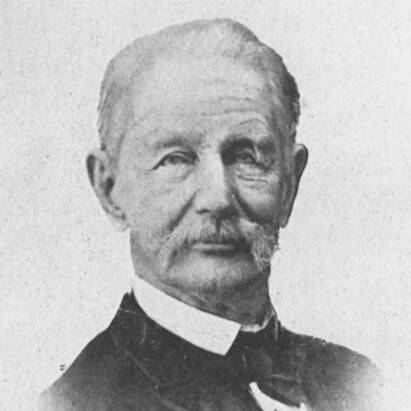
- Occupations
- marine biologistphysiciancuratorbotanistlepidopterist
- Biography
-
Karl Hermann Konrad Burmeister was a German Argentine zoologist, entomologist, herpetologist, botanist, and coleopterologist. He served as a professor at the University of Halle, headed the museum there and published the Handbuch der Entomologie (1832–1855) before moving to Argentina where he worked until his death.
-
Paul Georg von Möllendorff
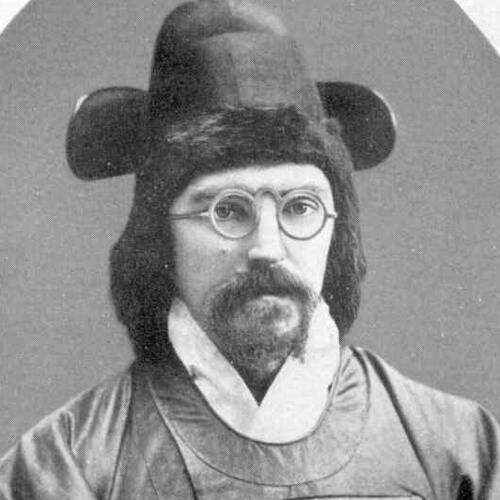
- Occupations
- diplomatlinguist
- Biography
-
Paul Georg von Möllendorff was a German linguist and diplomat. Möllendorff is mostly known for his service as an adviser to the Korean king Gojong in the late nineteenth century and for his contributions to Sinology. In English-language publications, Möllendorff is often credited with having designed a system for romanizing the Manchu language, which was in fact the creation of his compatriot Hans Conon von der Gabelentz.
-
Carl Neumann
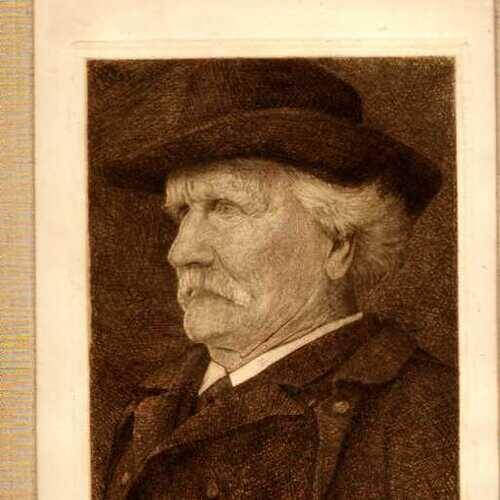
- Years
- 1832-1925 (aged 93)
- Occupations
- mathematicianuniversity teacher
- Biography
-
Carl Gottfried Neumann was a German mathematical physicist and professor at several German universities. His work focused on applications of potential theory to physics and mathematics. He contributed to the mathematical formalization of electrodynamics and analytical mechanics. Neumann boundary conditions and the Neumann series are named after him.
-
Adolf Grimme
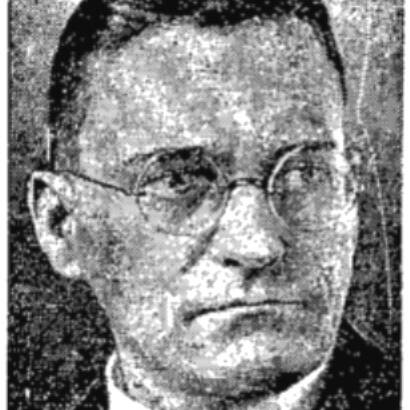
- Occupations
- politicianresistance fighter
- Biography
-
Adolf Berthold Ludwig Grimme was a German politician, a member of the Social Democratic Party (SPD). He was Cultural Minister during the later years of the Weimar Republic and after World War II, during the early years of the Federal Republic of Germany. During the Third Reich, he was arrested as a member of the German Resistance and sentenced to prison. After the war, he filed a legal complaint against the judge who had condemned him and others. After years of delays, the case was dropped by the prosecutor.
-
Hermann Haken
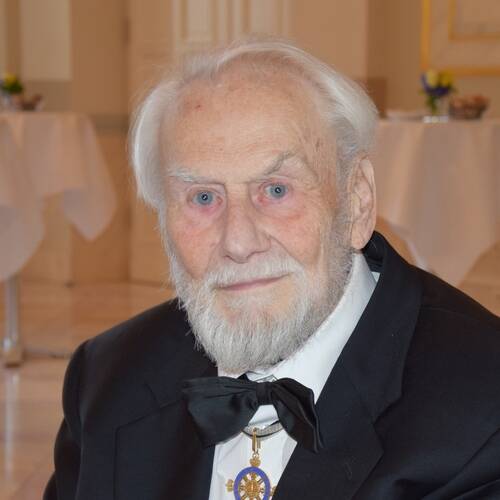
- Occupations
- university teacherauthortheoretical physicistphysicist
- Biography
-
Hermann Haken was a German physicist and professor emeritus in theoretical physics at the University of Stuttgart. He is known as the founder of synergetics and one of the "fathers" of quantum-mechanical laser theory. He is a cousin of the mathematician Wolfgang Haken, who proved the Four color theorem. He was a nephew of Werner Haken, a doctoral student of Max Planck.
-
Gáspár Károlyi
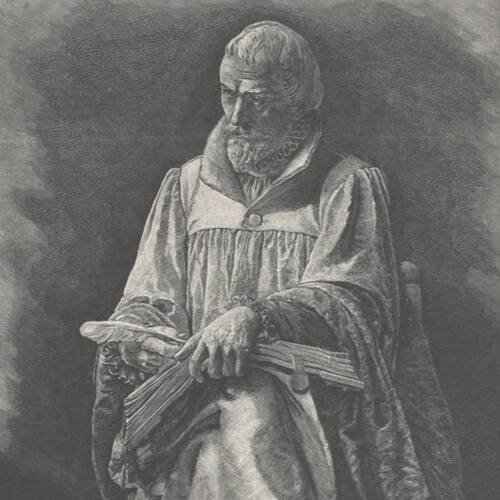
- Occupations
- translatortheologianBible translator
- Biography
-
Gáspár Károlyi, or in Protestant usage, Károli was a Hungarian Calvinist pastor. He was a major figure in the Reformed Church in Hungary. He edited the Vizsoly Bible.
-
Pierre Belon
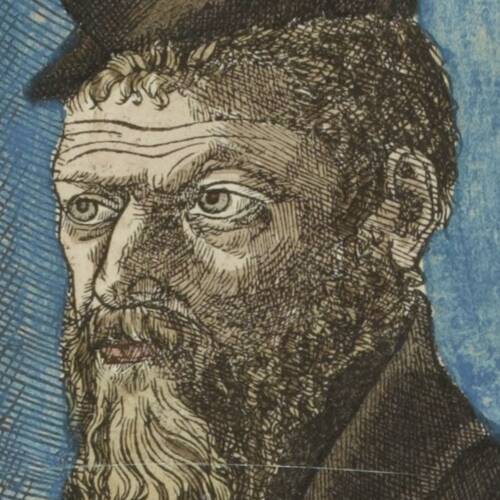
- Occupations
- ornithologistphysicianbotanistzoologistichthyologist
- Biography
-
Pierre Belon was a French traveller, naturalist, writer and diplomat. Like many others of the Renaissance period, he studied and wrote on a range of topics including ichthyology, ornithology, botany, comparative anatomy, architecture and Egyptology. He is sometimes known as Pierre Belon du Mans, or, in the Latin in which his works appeared, as Petrus Bellonius Cenomanus. The Russian physiologist Ivan Pavlov (known for Pavlov's dogs) called him the "prophet of comparative anatomy".


















